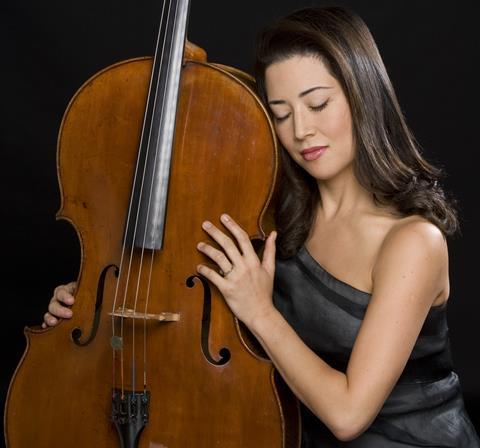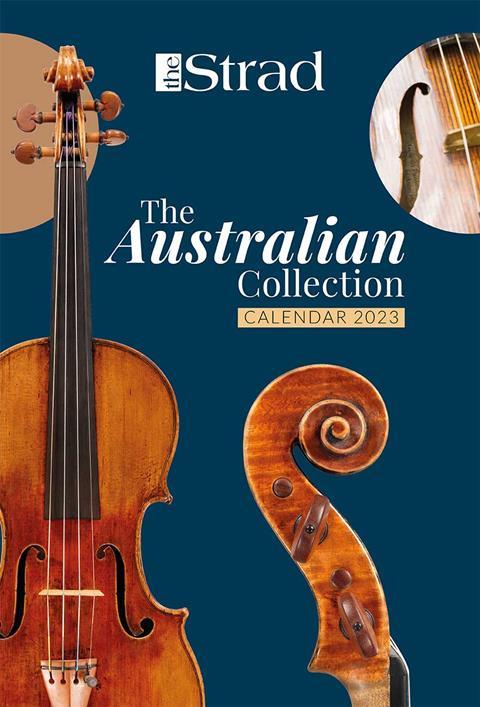Japanese vice-consul to Lithuania Sugihara saved thousands of Jewish refugees during World War II. Kristina Reiko Cooper outlines how his acts inspired Lera Auerbach’s Symphony no.6 ‘Vessels of Light’ for cello, choir and orchestra

Discover more Featured Stories like this in The Strad Playing Hub
The vision of a grand musical project commemorating the life of Chiune Sugihara was first conceived when I learnt of the incredible story of this righteous and humble Japanese man. It was a profound realisation to know that were it not for his heroic actions of saving thousands through his transit visas against the orders of his government, my husband and three beautiful children would never have existed. My husband’s father, Irving Rosen, was the recipient of Sugihara’s visa #1628, which ensured his survival. Thus, from the ashes and horror of the Holocaust, he was able to build a family and life.
Given my Japanese ancestry on my mother’s side, I understand how deeply Chiune Sugihara would have had to draw from within himself to defy his superiors in a culture where this would go against all of the social mores that the culture encapsulates: on the one hand, it was an outstanding act of courage; on the other, in the ways of the Samurai Warrior Bushido code, it was also the simplest act in the world—to just do what is right.
Having chosen to become part of the Jewish people, I also recognise the value of hakarat hatov, the recognition of good deeds. I was inspired to recognise this courageous man the only way I know how, through the transcendence of music.
Of course, I understood that when this passion and determination gripped my heart—- to bring this incredibly important story forward to a broad audience who had never even heard of Chiune Sugihara, a newly-commissioned modern work of classical music featuring a solo cello was not the most obvious choice. However, I thought that music, the universal language, featuring a cello, the closest instrument to the human voice, was the perfect way to tell the story of Chiune Sugihara, and in fact was the only way that I could do it.
Listen: The Strad Podcast Episode #50: Itamar Zorman on violin globetrotting
Read: Violins of Hope Richmond to showcase restored violins owned by Jewish musicians in the Holocaust
I was lucky enough to interest one of the legends of the classical music world, Edna Landau, the founder and former director of IMG artists, in the project. Once she agreed to take this on I knew that my dreams of making this a truly global project could fully be realised. With her on board, we were able to convince Yad Vashem, the World Holocaust Remembrance Center in Jerusalem, alongside The American Society of Yad Vashem to agree to become the global lead commissioners of this work. This was incredibly important to us as we wanted to partner with someone who could not only elevate the project, but also help bring it to a wider and relevant audience.
In today’s days of chaos, unrest, the rise of totalitarian governments and mass displacement of refugees and war, his story has never seemed more relevant. My hope is that this work will find its place in the standard orchestral repertoire and thus will have a life far beyond when we are still here.
Japanese culture and Jewish culture, especially Israel’s, where I reside now and where many of the Sugihara refugees ended up, are often polar opposites. Whereas in Japan, the entire society is set-up to observe etiquette, politeness and respect of protocol, Israel’s is often built around questioning convention. As someone with a foot in each culture, I can assure you it can be a treacherous, if not at times, quite amusing juxtaposition.
We presented the world premiere in November of 2022 in Kaunas, Lithuania—the very town where Sugihara signed the life-saving visas — under the leadership of Maestro Constantine Orbelian. It was deeply moving for me to wander the very streets where my father-in-law once trod to find a way to escape certain death, and where almost everyone who did not escape, perished. Having the first performance in Kaunas was an unforgettable experience.
It has been my dream, and now, incredibly, a reality, to bring this project to fruition thanks to the hard work of many and through Lera Auerbach’s amazing musical score and to celebrate the preciousness of life by shining light on an ultimately very simple act of Chiune Sugihara. May his actions continue to inspire us all.
After the premiere, the world tour kicked off in 2023 with the Prague Radio Orchestra in the Czech Republic. The next stop is Carnegie Hall on 19 April with the New York City Opera Orchestra and Chorus under Constantine Orbelian. The US West Coast premiere will be with the UCLA Orchestra and Chorus on 18 May followed by Festival Napa Valley on 18 July with Maestro Orbelian, Warsaw with Sinfonia Varsovia on 8 October, and the final concert of the year with the Dresden Philharmonie on 11 November. Concerts resume again in 2024 with the Leipzig Gewandhaus Orchestra in Germany, conducted by Alan Gilbert, on 11 and 14 January; the Konzerthaus Orchester in Berlin with Joana Mallwitz in the autumn of 2024, and more performances to be announced.
For tickets to the Carnegie Hall concert go to https://www.carnegiehall.org/Calendar/2023/04/19/A-Concert-for-Sugihara-0700PM
For more information on the project go to https://www.thesymphonyforsugihara.com/
Read: Sentimental Work: Anne Akiko Meyers on traditional Japanese songs
Read: Itamar Zorman, voice for Israel
Read more Featured Stories like this in The Strad Playing Hub
The number one source for playing and teaching books, guides, CDs, calendars and back issues of the magazine.
In The Best of Technique you’ll discover the top playing tips of the world’s leading string players and teachers. It’s packed full of exercises for students, plus examples from the standard repertoire to show you how to integrate the technique into your playing.
The Strad’s Masterclass series brings together the finest string players with some of the greatest string works ever written. Always one of our most popular sections, Masterclass has been an invaluable aid to aspiring soloists, chamber musicians and string teachers since the 1990s.
This year’s calendar celebrates the top instruments played by members of the Australian Chamber Orchestra, Melbourne Symphony, Australian String Quartet and some of the country’s greatest soloists.













































No comments yet